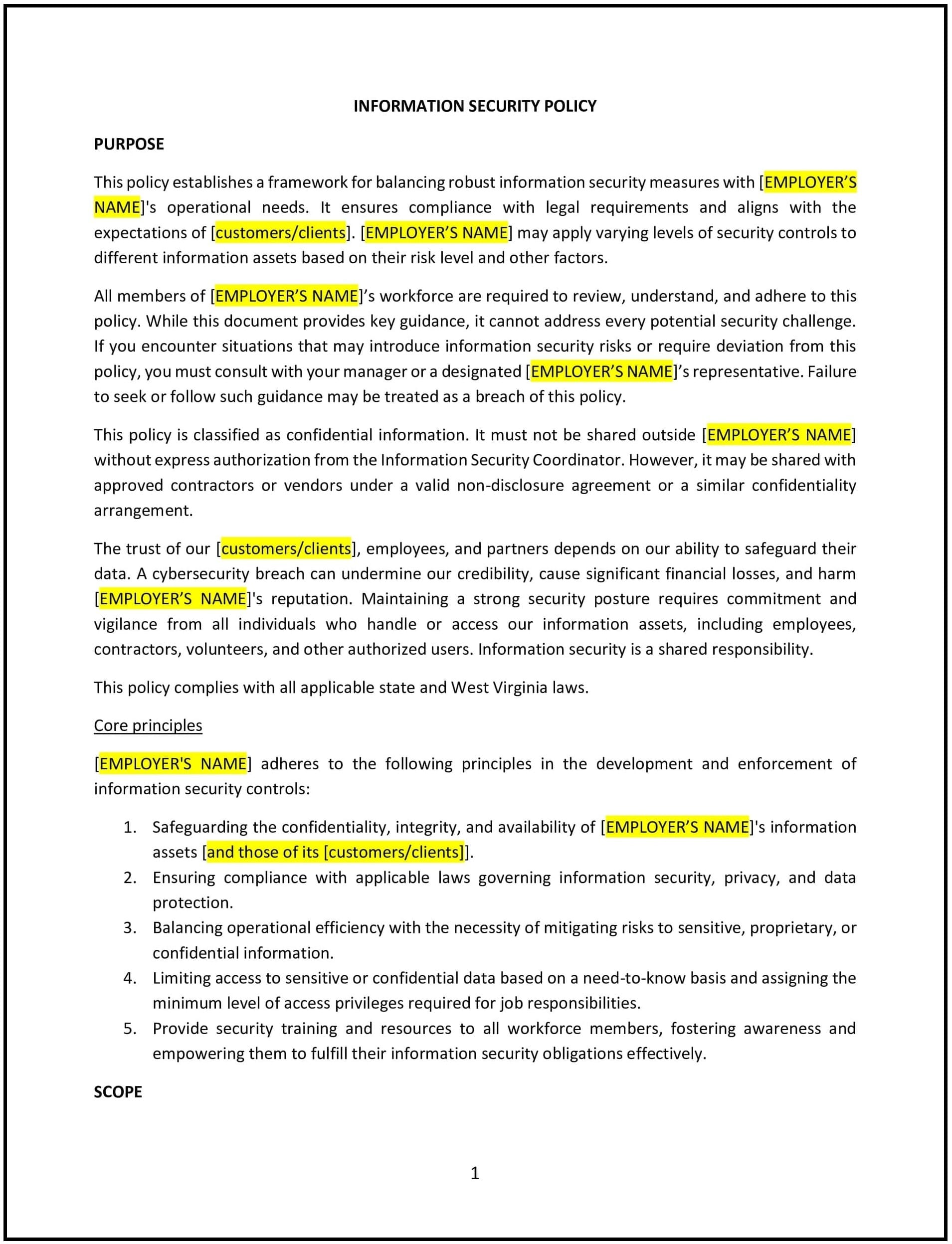Information security policy (West Virginia): Free template
Got contracts to review? While you're here for policies, let Cobrief make contract review effortless—start your free review now.

Customize this template for free
Information security policy (West Virginia)
In West Virginia, an information security policy outlines guidelines to protect sensitive company data and systems from unauthorized access, breaches, and cyber threats. This policy ensures adherence to state and federal data protection laws while fostering a culture of accountability and security.
The policy defines roles, establishes data protection measures, and provides protocols for responding to security incidents.
How to use this information security policy (West Virginia)
- Define sensitive information: Specify the types of data covered under this policy, such as financial records, customer information, intellectual property, and employee details.
- Establish access controls: Detail procedures for granting and managing access to sensitive systems, ensuring only authorized personnel can view or modify critical data.
- Implement technical safeguards: Outline the use of encryption, secure passwords, firewalls, and multi-factor authentication to protect company information.
- Provide incident response guidelines: Include steps for identifying, reporting, and addressing data breaches or security threats.
- Support compliance: Ensure the policy aligns with West Virginia laws and federal regulations, such as the Gramm-Leach-Bliley Act (GLBA) or applicable cybersecurity frameworks.
Benefits of using an information security policy (West Virginia)
- Enhances data protection: Safeguards sensitive company and employee information from breaches or misuse.
- Supports compliance: Aligns with West Virginia and federal regulations, reducing legal risks and penalties.
- Promotes accountability: Clarifies roles and responsibilities for maintaining data security within the organization.
- Reduces risks: Minimizes the likelihood of financial loss and reputational harm due to security breaches.
- Builds trust: Demonstrates the organization’s commitment to protecting employee and customer data.
Tips for using an information security policy (West Virginia)
- Conduct employee training: Provide regular training on recognizing cybersecurity risks and following best practices for data protection.
- Monitor systems: Use security monitoring tools to detect suspicious activity and prevent breaches in real time.
- Test incident response: Regularly evaluate and practice response plans to ensure readiness for handling security incidents effectively.
- Update technologies: Regularly upgrade software and hardware to address emerging threats and vulnerabilities.
- Review periodically: Update the policy to reflect changes in laws, business practices, or technological advancements.